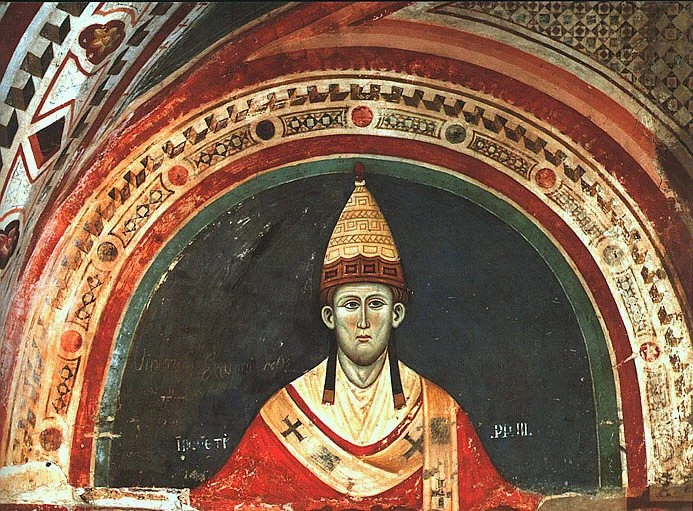Balancing Faith with Reason
The Greek philosophers Plato and Aristotle have been dead for over 2,000 years, but their intellectual legacies are alive and well. We might think that whatever influence they had in their lifetimes has little relevance in modern times. If we think that, we would be wrong. Their contrasting views of what really matters have, if anything, elevated the importance of finding balance between religious faith and scientific reason in today’s world.
Plato is known for a rather pessimistic attitude regarding life. He viewed existence as fraught with sorrow, conflict, and brokenness. Even though this world is flawed, Plato believed that our souls have an intuitive sense that there is a realm beyond this one that is perfect. Human existence is made bearable by the knowledge that all the ills of our present reality are but imperfect copies of the perfect world beyond. Although Plato lived centuries before Jesus, his views have distinctly Christian overtones.
Aristotle, on the other hand, was more optimistic about this world and believed that human beings have the ability to control their passions and human weaknesses to improve society. Friendship, family life, political participation, and contemplation can make life on earth a satisfying experience. He saw the world as harmonious and full of natural wonders that could be explored, analyzed, understood, and even transformed. Human beings have the ability to think, reason, and figure things out in order to improve our lives.
These different approaches to life can be seen in Raphael’s remarkable painting, The School of Athens, where Plato and Aristotle are shown walking side by side. Plato’s hand is pointing up to a higher reality, a world where all is perfect, whereas Aristotle’s palm faces down, signifying an embrace of this life. In a sense, you might say that Plato was a theologian, while Aristotle was a scientist.
The School of Athens
Both philosophers, of course, make important arguments. Plato is right that life is hard, and we understandably hope for a world where all the wrongs of this life will be set right. Then, too, Aristotle has a point by stressing that existence has almost unlimited potential, as we have the intellectual ability to transform the world into a better place.
A problem arises, however, when one philosophical perspective tries to dominate the other. When both religious faith and scientific reason work together, learning from each other and sharing insights, much can be gained. We have an innate spiritual curiosity that there is more to this universe than the material. Our intuition tells us that there is a spiritual reality that transcends this world. But we also are fascinated by the natural world and are driven to use our reason to investigate, understand, and invent, thereby fulfilling our potential as human beings created in the image of God. In other words, both religious faith and scientific reason contribute to the balancing of life.
For the first thousand years or so of church history the balance between faith and reason got out of whack. The more scientific approach of Aristotle was more or less sidelined as Plato’s philosophical other-worldly theories became the dominant narrative within the church.
Plato
Plato’s pessimism regarding this world and belief in a perfect world appealed to Christians who suffered through the Fall of Rome and the difficult epochs of the Middle Ages. There was little room for scientific inquiry when the focus centered on the salvation of one’s soul. In the process, scientific inquiry was put on the back burner as Europe became fixated on theological questions. In the meanwhile, other civilizations such as the Islamic Empire and China advanced far ahead of Europe in both science and technology.
That’s not to say there weren’t thoughtful Christians who attempted to balance faith with reason throughout those troubled-filled centuries. Too often, though, their voices were drowned out by the surging secular power of the church. It wasn’t until Saint Aquinas in the 13th century, over fifteen hundred years after the Greek philosophers, that Aristotle’s scientific theories began to be openly studied and discussed by the church. Aquinas realized Aristotelian ideas provided a more reasonable perspective of the world and, consequently, encouraged his students to read the great Philosopher.
Saint Thomas Aquinas
As a side note, Christendom owes a large debt to Islam for the rediscovery of Aristotle. While Europe was languishing in the Dark Ages, Islamic scholars had been translating and reading Aristotle for centuries, and had developed a highly sophisticated civilization, due in large part to the writings of the Greek philosophers. Fortunately for Europe, the Islamic Empire began to export its translations of Aristotle to Spain and other cities in Europe that helped to bring about a renaissance of learning in the West. Paradoxically, Islamic fundamentalists gained control of Islam and were threatened by Aristotelian science. Soon, Islamic religion turned its back on Aristotle and fell into its own self-imposed dark age.
Even so, the study of Aristotle in Europe did not come without a fight. The church vacillated back and forth from the acceptance of Aristotelian thought to condemnation. At one time, even Thomas Aquinas found himself on shaky ground with religious authorities. But Pope Innocent III wisely understood that to ignore Aristotle would result in the church ceding its intellectual force to the secular world, a certain death knell for Christianity.
Pope Innocent III
Although modern science has far surpassed Aristotelian scientific thought, today’s science stands on his shoulders and acknowledges the thinker’s significant contributions. Moreover, we also owe a debt of gratitude to the medieval theologian, Thomas Aquinas, who opened the door for the church to learn from the Greek philosopher. Instead of fearing science, Aquinas embraced it and reconciled faith with reason. In the aftermath of Aquinas’ acceptance of Greek scientific thought, the modern era was born.
There has always been an uneasy relationship between religious faith and scientific reason. Sometimes science oversteps its bounds and sometimes faith does, but each discipline needs the other. Science needs faith to shed light on the ethical and moral questions of existence. What are our obligations to each other and the world? What constitutes a meaningful life? Why is life precious? Science doesn’t have the tools to answer these kinds of questions.
Just as important, faith needs science to open our eyes to the magnificence of God’s creation and how we can better care for this beautiful planet. Science can help us to live better lives by discovering breakthroughs in diseases, health care, environmental problems, artificial intelligence, and a host of other perplexing issues. Scientific reasoning challenges our superstitions and calls us to use our God-given intellect to explore what we do not yet understand.
In recent years, though, a troubling trend has developed where people of faith have turned their backs on science. Part of the reason may be attributed to the politicization of religious belief. Regardless of politics, though, how can people of faith stand idly by while our government cuts funding to the National Health Institute? Over 2,200 research grants have been eliminated totaling $3.8 billion. As a result, lives will be negatively impacted. But that’s not all. The budgets of the Environmental Protection Agency have been reduced by 54%. More than 1/3 of the funding for the US National Academies of Science has been cut. Tax credits for clean energy have been sharply reduced halting advancements in solar panel production, wind turbines, electric cars, and green technologies.
While some may view these reductions as merely political, our country will lose its cutting edge in science and technology if this course is not soon reversed. All of these cuts will affect America’s longstanding primacy as the scientific leader in discovery and innovation. Have we forgotten what civilization was like before science? Have we failed to learn from history what happened to the once powerful Islamic Empire when it turned its back on science? Is our faith so fragile that we are intimidated by the progress of scientific reason?
Faith in a rational God gives creation meaning and purpose. Faith allows human beings to freely investigate the world as far as our reason will take us. As we listen to both Plato and Aristotle, we can embrace both religious faith and scientific reason without fear.






